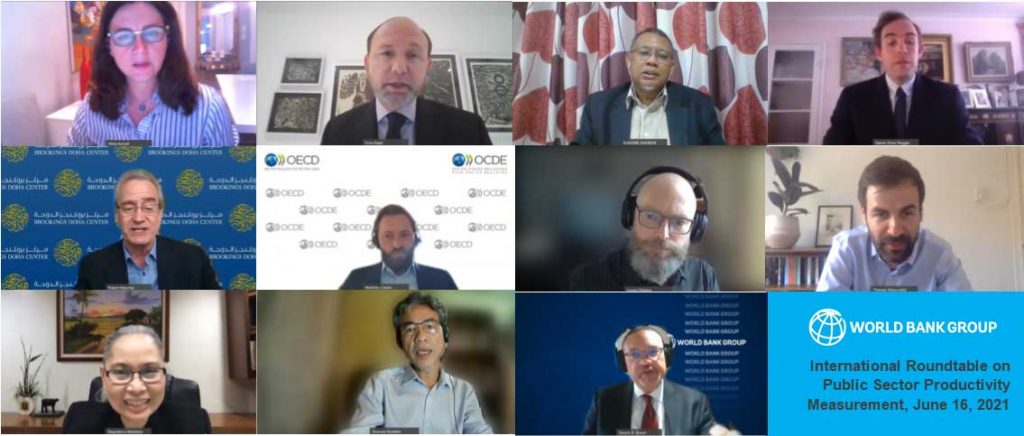The global pandemic has heightened the productivity imperative in the public sector. The accurate measure of productivity is important for policy given that the public sector is a major employer in most economies. This is the main point stressed by Firas Raad, World Bank Country Manager based in Malaysia at the International Roundtable on Public Sector Productivity Measurement held on June 16, 2021, organized by the World Bank to discuss the issue of public sector productivity. The panel comprised of two reactors from ASEAN (Philippines and Malaysia), the Organization for Economic Co-operation and Development (OECD) and the European Commission.

To start with, Daniel Rogger of the Bureaucracy Lab presented the architecture for productivity analysis using an articulated model of understanding of productivity in government, the complementary approach of using macro and micro-measures of productivity, and the correlation of data to determinants of productivity. Members of the panel also shared their organization’s experiences, challenges, and key lessons in measuring public sector productivity.
Magdalena Mendoza, Senior Vice-President of the Development Academy of the Philippines, traced the evolution of productivity movement in the Philippine public sector at a time when the country had a very tight fiscal situation, then under the period of heightened demand for results, and the need to regain the trust of its citizenry. She mentioned that measuring public sector productivity remains a challenge although there had been several efforts to do so. For instance, productivity measurement done at the service-level such as tax collection, licensing, and passport application using the methodology of Dunleavy and Carrera of the London School of Economics and at meso-level such as health and education adapting an approach used to measure productivity in Australia. She raised the need for a consensus on the construct of public sector productivity to adopt a national-level measurement approach.
Other members of the panel also shared their organization’s experiences, challenges, and key lessons in measuring public sector productivity. Mattieu Cahen, Senior Policy Analyst of the Infrastructure and Public Procurement Division of the OECD discussed the challenges on data such as lack of standardization, disconnection between data, main impact, the importance of environment, and context. He also conveyed the trend of looking beyond efficiency and effectiveness of administration and into the broader sense of well-being. Dr. Lewis Dijksta, Head of the Economic Analysis Sector of the Directorate-General for Regional and Urban Policy, European Commission shared the experience of the World Justice Project using a justice scoreboard that relied on administrative data monitored regularly to create a government benchmark. This showed data variation in regional and urban contexts which enabled the transfer of knowledge for improvement. Dr. Thomas Niaounakis, Senior Advisor of the Ministry of Finance Netherlands, provided the advice of prioritizing organizations willing to adopt productivity measurement compared to those resistant in lieu of the challenges of implementation. Dr. Anesee Ibrahim, Director for Research of the Planning and Policy Division of the Public Service Department of Malaysia, seconded the panel members in their challenges and key learnings. He emphasized how measuring productivity at the individual level can have a very big impact on human resource management as data provides actionable information and understands characteristics that correlate to productivity.
Deryck Brown, Senior Public Sector Specialist of the World Bank, closed the session by synthesizing the efforts from the different countries and highlighting creative ways to address implementation challenges. With public sector productivity measurement becoming increasingly relevant to improve performance and deliver better public service, he encouraged organizations like the DAP to participate in the various activities of the World Bank’s Bureaucracy Lab, which is purposed to produce new datasets and conduct analytical work to better understand and innovate government bureaucracies.
